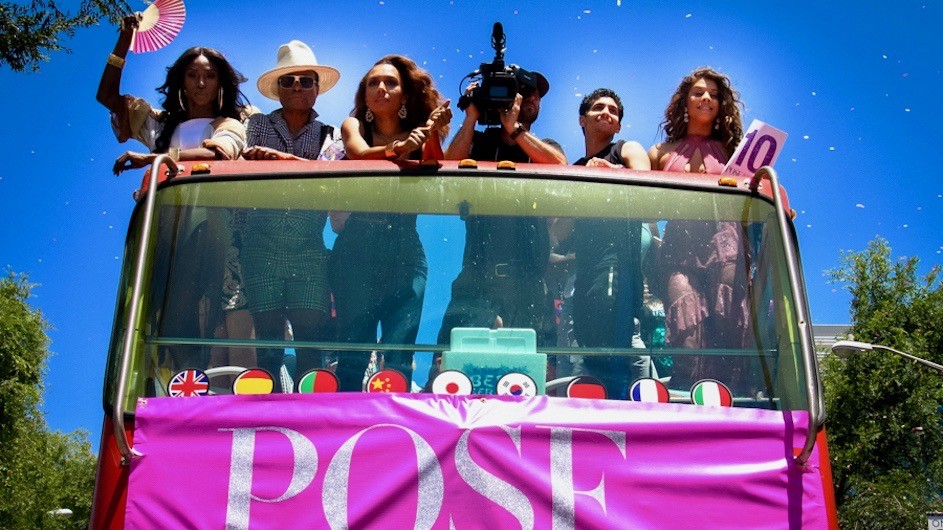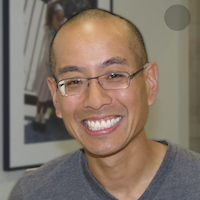Drama Series 'Pose' Exposes New Generations to the Early Days of the HIV/AIDS Crisis
There's been much progress in HIV/AIDS treatment, but it's important to remember the fear as well as solidarity the was experienced in the 1980s.

For World AIDS Day 2021, the United States government has adopted the theme “Ending the HIV Epidemic: Equitable Access, Everyone’s Voice.” Historically, “everyone’s voice” has not always been heard in the fight against HIV. The popular recent television show, Pose, elevated some of those ignored voices from the earlier decades of the epidemic. I imagine many members of the LGBTQ+ community and mainstream society have viewed the dramatization of the ballroom scene pioneered by the Black, Latino, gay, and trans community during the 80s and 90s in New York City. The compelling stories, the visual feast, and the emotion and attitudes as “houses” competed for social status and awards at ballroom fashion and dance competitions made Pose a captivating “add to my watchlist” or “must binge” show.
For those who are Black and brown, and/or trans or gender non-conforming (TGNC), the show has finally given mainstream voice to those who carry the disproportionate burden of being left behind in early HIV/AIDS prevention and treatment efforts.
Some of the first episodes of the series involve scenes from a hospital where a young gay man was laid prone and weak with a gaunt complexion and lesions covering his body. The show depicted hospital rooms full of young gay men. Faces from patients, their loved ones at their bedsides, and medical staff filled with uncertainty of what exactly would happen, yet understanding what would happen, death preceded by physical misery, often blindness. People—even doctors and nurses—were afraid to touch or be near you. The feelings of fear, panic, and dread that dominated days, weeks, months, maybe even years back in the '80s and '90s came crashing back to me. The inescapable thoughts of “No one really gets past this” and “Am I next?” Even now, words fail me in trying to capture the harrowing prospect of dying as an untouchable.
It has been at least 15 years since I had those feelings, but they still sneak up on you. Fifteen years of freedom from the specter of a horrible and misery-inducing plague, in my younger years as a queer man, so heavy and prominent as to feel inexorable. Fifteen years of gradually fading out as antiretroviral treatment and regimens progressed in their effectiveness. I was proud to be part of the research workforce contributing to the successes in the fight against HIV/AIDS.
Lessons From Decades on the Frontlines of the HIV/AIDS Pandemic
Today, as in the past, my HIV prevention and intervention research emphasizes social justice. While my research focuses on the health disparities faced by marginalized groups—such as the extraordinarily high rates of HIV infection among Black men who have sex with men—the interventions I develop and test seek to ameliorate these health disparities by targeting structural and systemic racism, especially anti-Black racism; heterocentrism and homophobia; oppression and discrimination; stigma; and ableism and other “isms.”
I happened to be watching that hospital scene from Pose with someone born in the mid-90s. I witnessed someone who consumed the sights and sounds of the scenes in Pose as a story, as a drama, as entertainment. That person was taken aback by the tears that started to flow from my eyes. For my viewing partner, I know the scenes were moving and meaningful, but it was entertainment, nonetheless. There was no direct memory of the sights and sounds. Even the best produced television show cannot recreate the smell of disinfectant combined with decay. For my viewing partner, the hopelessness was a feeling evoked by a television show rather than a recollection of an inescapable experience. The generations of people who will be detached from the terror of that time, but also the closeness and solidarity, continue to grow.
The fact that those from younger generations—including some of my colleagues at the School of Social Work—did not revisit trauma while watching Pose is a sign of the cumulative achievements in the fight against HIV/AIDS. However, I recognize that the gradual yet unrelenting progress has caused me to lose touch with some profound experiences and feelings that were and are shared among many queer and gay men. So, let us celebrate that HIV infection has been rendered as treatable and de-stigmatized as other “mainstream” chronic conditions like diabetes, hypertension, and depression. I have been part of the HIV research enterprise, conducting HIV research with queer and TGNC individuals at risk for and living with HIV. I am constantly humbled that some have spent time in the last year(s) of their lives contributing to research—mine and that of my colleagues. We must acknowledge that so many of the advances in HIV/AIDS have been borne from the commitment and grace of Black and brown queer and TGNC folks.
While I know that World AIDS Day 2021 will celebrate the science and academic achievements, I hope something as simple as a Pose viewing experience will also prompt folks to see the day as one of remembrance and honor for the losses and sacrifices—and leadership and victories—of queer and TGNC folks. I want to remember all of the history and reasons, all of these lost voices, that allow me and others to experience this moment today and many more in the future.

Elwin Wu is a professor at the Columbia School of Social Work and co-director of the Social Intervention Group and the HIV Intervention Science Training Program for Underrepresented New Investigators. His experience includes direct clinical practice with individuals, couples, and groups with agencies serving primarily the lesbian, gay, bisexual, queer, and transgender communities; evaluation of violence prevention programs for partner violence in same-/similar-sex relationships; and program development and evaluation for criminal justice-involved adolescents and adults.
This column is editorially independent of Columbia News.